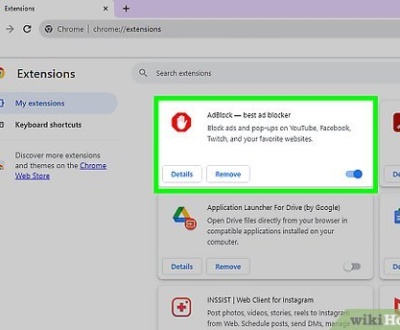Understanding how to start digital marketing is essential for anyone looking to build a successful online presence. Digital marketing professionals leverage various channels such as SEO, social media, and email campaigns to attract and retain potential clients. A degree in marketing can be beneficial, but mastering key digital marketing skills, including strategic thinking, analytical skills, and content creation, is crucial. Whether you’re an aspiring digital marketing expert or launching a digital marketing agency, having a solid content marketing strategy and an effective digital strategy will help you stay ahead in the competitive digital marketing industry.
Introduction
What is Digital Marketing?
Digital marketing encompasses all marketing efforts that use the internet or electronic devices. Businesses leverage digital channels such as search engines, social media, email, and websites to connect with current and prospective customers. A digital marketer plays a crucial role in navigating the digital marketing landscape to create compelling marketing strategies.
Why is Digital Marketing Important?
In today’s business environment, digital marketing is crucial for reaching a wider audience, driving traffic, and increasing sales. Digital marketing professionals and digital marketing agencies use effective marketing strategies to give businesses a competitive edge. It allows businesses to target specific demographics, track performance in real-time, and optimize digital marketing campaigns for better results. The digital marketing industry experts emphasize the importance of strategic thinking and data-driven decisions to stay ahead.
Understanding the Basics of Digital Marketing
Types of Digital Marketing Channels
| Digital Marketing Channel | Description |
|---|---|
| Search Engine Optimization (SEO) | Optimizing your website to rank higher in search engines like Google. SEO specialists help improve rankings. |
| Social Media Marketing (SMM) | Promoting your brand on platforms like Facebook, Instagram, and LinkedIn. Digital marketing specialists leverage these channels. |
| Content Marketing | Creating valuable content to attract and engage an audience. A solid content marketing strategy is key. |
| Email Marketing | Sending targeted email campaigns to nurture leads and maintain customer relationships. |
| Pay-Per-Click (PPC) | Running paid ads on search engines and social media platforms. |
Key Digital Marketing Concepts
- Conversion Rate: Percentage of users who take a desired action.
- CTR (Click-Through Rate): Percentage of people who click a link out of total impressions.
- Bounce Rate: Percentage of visitors who leave the site without interacting further.
Setting Your Digital Marketing Goals
- Identify Business Objectives: Are you aiming for brand awareness, lead generation, or sales?
- Create SMART Goals:
- Specific: Define clear objectives (e.g., “Increase website traffic by 30% in 6 months”).
- Measurable: Trackable metrics using tools like Google Analytics.
- Achievable: Set realistic targets.
- Relevant: Align with overall business strategy.
- Time-bound: Set deadlines for achieving your goals.
- Align with Business Strategy: Ensure your digital marketing supports your core business aims. Business growth and development depend on well-defined strategies to clients.
Knowing Your Target Audience
- Create Buyer Personas: Define your ideal customer based on demographics, behavior, and pain points.
- Conduct Market Research:
- Use surveys, social listening, and analytics tools to gather insights. A component of market research is understanding your target market.
- Analyze Competitors: Identify what works for competitors through tools like SEMrush or Ahrefs.
Developing Your Digital Marketing Strategy
- Choose the Right Channels: Prioritize channels where your audience is most active.
- Create a Content Strategy:
- Plan content types: blogs, videos, infographics.
- Use a content calendar for scheduling.
- Social Media Plan: Define posting frequency, audience engagement, and advertising.
- Email Marketing:
- Build a subscriber list.
- Segment your audience for personalized email campaigns.
- Budgeting: Allocate resources across content creation, paid advertising, and software tools. Budget-conscious clients need a well-structured approach.
Essential Digital Marketing Tools
| Tool Category | Recommended Tools |
| SEO | Google Search Console, Ahrefs, SEMrush |
| Social Media Management | Buffer, Hootsuite, Meta Business Suite |
| Email Marketing | Mailchimp, HubSpot, ConvertKit |
| Analytics | Google Analytics, Google Tag Manager |
| Content Creation | Canva, Adobe Express, Grammarly |
Step-by-Step Guide: Setting Up Google Analytics
- Sign up at Google Analytics.
- Click “Admin” and create a new property.
- Set up your website URL and data sharing preferences.
- Install the tracking code on your WordPress site using a plugin like Site Kit.
- Verify tracking and start monitoring data.
Implementing Your Digital Marketing Plan
- Set Up Your Website: Ensure your WordPress site is optimized for performance and user experience.
- Optimize for SEO:
- Use relevant keywords in titles and meta descriptions.
- Implement internal linking.
- Optimize images and site speed.
- Content Creation: Publish regular blog posts and multimedia content. A convincing portfolio is key for attracting potential clients.
- Social Media Campaigns:
- Post consistently.
- Engage with your audience.
- Email Marketing: Use automated workflows for onboarding and re-engagement.
Measuring and Analyzing Results
- Key Performance Indicators (KPIs):
| KPI | Purpose |
| Website Traffic | Measure audience reach. |
| Conversion Rate | Evaluate effectiveness of CTAs. |
| Bounce Rate | Assess user engagement. |
| ROI (Return on Investment) | Determine financial efficiency. |
- A/B Testing: Compare variations of web pages or emails to optimize performance.
Scaling Your Digital Marketing Efforts
- Automation: Use project management tools like HubSpot for marketing workflows.
- Expand Channels: Explore new platforms like TikTok or Pinterest.
- Outsource: Hiring a digital marketing company can help manage complex projects.
Common Challenges and How to Overcome Them
- Algorithm Changes: Stay updated through industry blogs like Search Engine Journal.
- Budget Management: Prioritize high-performing channels.
- Negative Feedback: Address concerns promptly and transparently.
Case Studies
Case Study: Small Business Success
A local e-commerce business increased sales by 200% in 12 months through:
- Optimized WordPress SEO with high-intent keywords.
- Regular content updates.
- Targeted Facebook and Google Ads.
Conclusion
Starting a digital marketing career involves strategic thinking, continuous learning, and execution. With the right tools and strategies, digital marketers can unlock opportunities and establish a strong client base.
FAQs
1. How much does it cost to start digital marketing?
- Costs vary but can start as low as $100/month for basic tools and advertising.
2. How long does it take to see results?
- SEO may take 3-6 months, while PPC can deliver immediate results.
3. Do I need technical skills to start?
- Basic WordPress knowledge is helpful, but many tools are beginner-friendly.
4. What are the best free digital marketing tools?
- Google Analytics, Search Console, and Canva offer robust free features.
5. Can I handle digital marketing alone?
- Yes, but as you scale, consider outsourcing to a digital agency.
About us and this blog
We are a Full-Service Sales & Marketing provider that aims to help small to medium businesses increase their leads and sales while helping remove the business owners from their day-to-day activities so they can focus more on the long-term goals of their business.
Book a Meeting with us!
We offer Done-For-You Sales, Sales Coaching, and Advisory as well as Digital Marketing Services. If you want to increase the leads generated for your business and need some guidance and accountability, book a call with us now.
Subscribe to our newsletter!
More from our blog
See all postsRecent Posts
- How Do You Stop Google Ads May 9, 2025
- How to Make Money Off Social Media May 5, 2025
- How to Duplicate Page WordPress May 1, 2025









